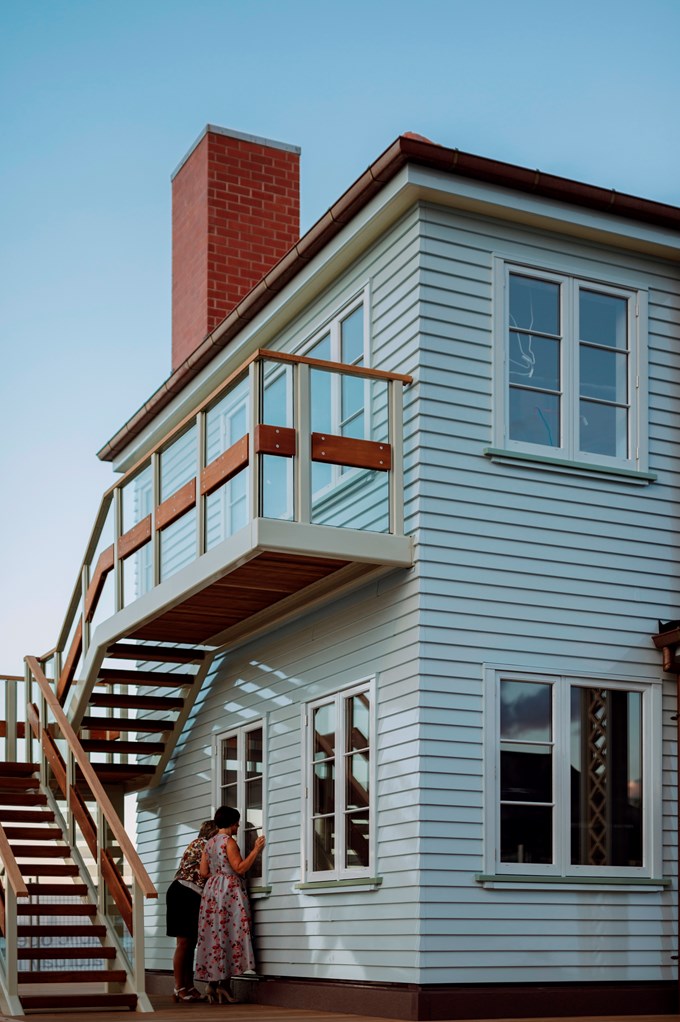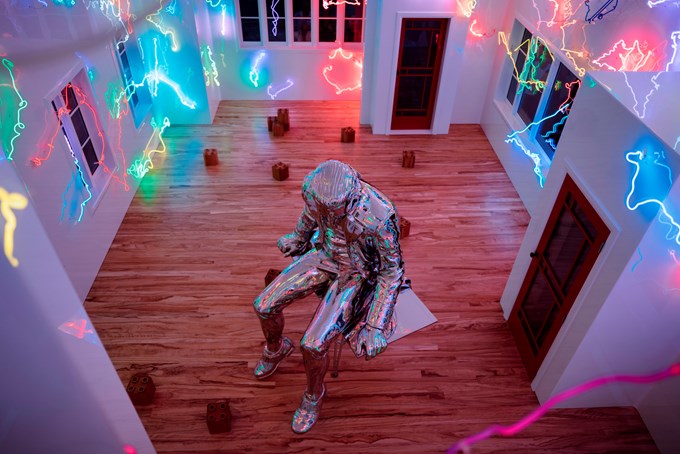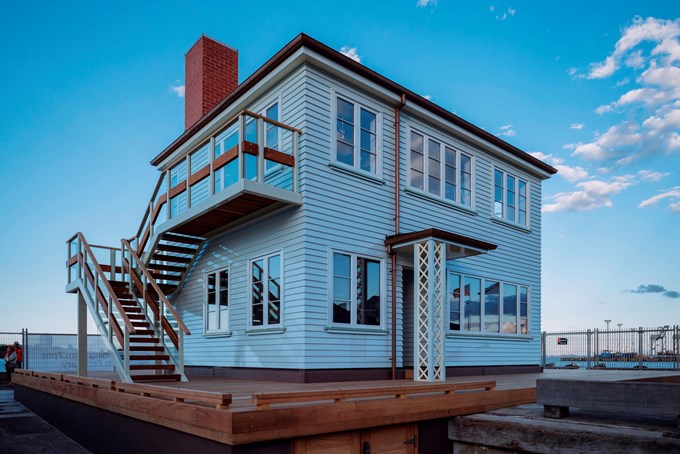The long-awaited Michael Parekowhai artwork, The Lighthouse, is now complete and is welcoming visitors to Queens Wharf and Auckland’s harbour.
The Lighthouse can be viewed at any time and is illuminated at night. Please note that the interior is not accessible to the public.
The Lighthouse is the largest gift of public art that Auckland has ever received and was donated to the city by real estate firm Barfoot & Thompson Ltd to acknowledge its 90 years in business.
Barfoot & Thompson Managing Director Peter Thompson says it is a time-honoured tradition for people and organisations to make a financial contribution to artwork and amenities that benefit their community.
“The Barfoot & Thompson families are honoured to be able to continue that tradition," he says.
“In our case, our financial gift has gone towards funding the creation and building of The Lighthouse, an artwork which now stands proudly at the end of Queens Wharf.
“Michael is an outstanding Auckland artist with a list of notable works to his name. I am in admiration of the thinking behind this latest piece of his art,” he says.
Councillor Penny Hulse, chair of the council’s Environment and Community Committee, acknowledged the generosity of Barfoot & Thompson, and the donors that joined them.
“I would like to whole-heartedly thank Barfoot & Thompson for bringing The Lighthouse to Queens Wharf and contributing a compelling work to our city’s public art collection.
“Alongside Barfoot & Thompson there are many others that have contributed to this artwork – they wish to remain anonymous, but their generosity and kindness is greatly appreciated.
“I am very excited that we can now count The Lighthouse as part of Auckland’s public art collection. It is a beacon on the harbour as well as a leading light for the future of public art in Auckland.”

The Lighthouse is a just that – a house filled with light. Its exterior takes the form of a traditional 1950s New Zealand home, based on a house on the Eden-Roskill border. The exterior colours reference the site and environment on Queens Wharf and the space between the sea and the sky.
Inside reveals something different and unexpected. The English Channel, a polished stainless steel sculpture of Captain James Cook, occupies part of the void. Cook is contemplative. He faces the north-west and the light constellations dance off his highly polished surface.
Artist Michael Parekowhai sees the work as a ‘small house that holds the cosmos’.
“We have the whole world in our house. A house that you can look into and see through," he says.
“Our ‘chandeliers’ are not ones that hang from the ceiling but clusters of neon lights that represent the constellations and, like chandeliers, illuminate up towards the ceiling.
“Within the stars sits The English Channel. Its presence grounds the work. He’s not the heroic Cook that we often see; he’s more pensive, more thoughtful, considering what his next move might be,” he says.

The interior finish is highly reflective, with no sharp corners, allowing light to bounce around the space.
“In one corner there is a fireplace; it’s really just a memory of a one. Cook’s feet face towards that fire. It’s as if he’s warming his feet, but his gaze and mind are somewhere else.
“The coloured light implies the notion of ahi kā; the idea that the home fires are burning and the lights are still on,” says Michael Parekowhai.
The artwork budget of $1.5 million is made up of Barfoot & Thompson’s $1 million gift and additional funding by donors who wish to remain anonymous.
The exterior of The Lighthouse was constructed at a closed site in the Wynyard Quarter and moved by barge to Queens Wharf for completion. The lights will remain on at all times and people will be able to view it through its numerous windows and from the stairs that climb up its western side.
The Lighthouse now becomes part of Auckland Council’s Public Art Collection and will be cared for by the council’s public art team.


